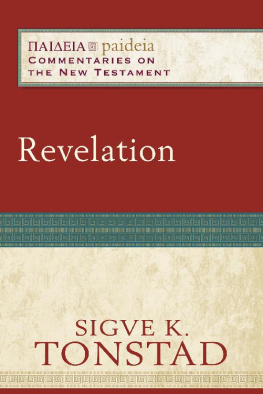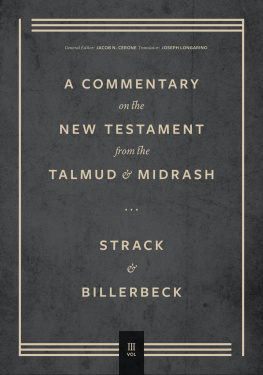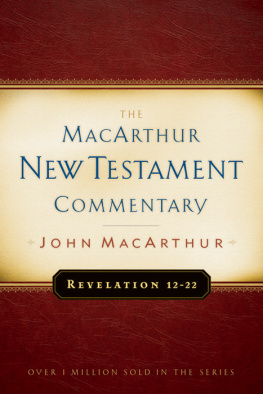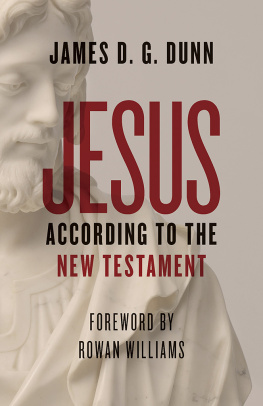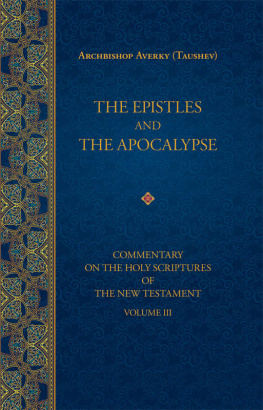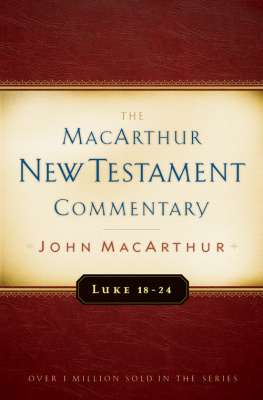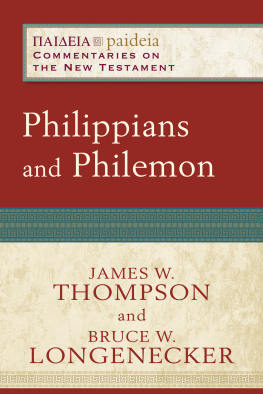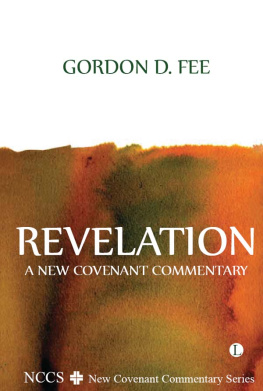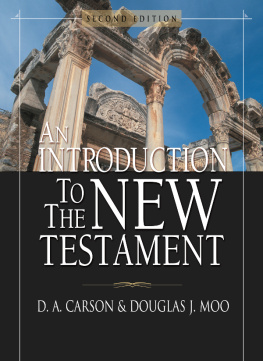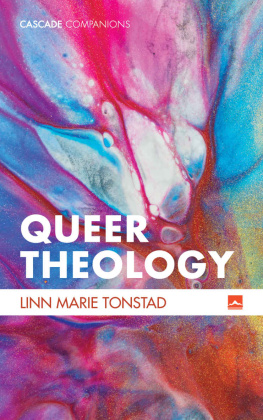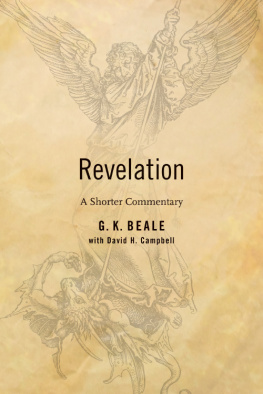Figures

1. Domitian on Horseback
2. Apotheosis of Lucius Verus
3. Augustus as Soldier and Emperor
4. Augustus as Priest and Father
5. Relief of Nero and Britannicus
6. Relief of Nero and Agrippina
7. View of Patmos Today
8. The Structure of Revelation 12
9. Cycles of Seven in Revelation
10. Amphitheater at Ephesus
11. Synagogue at Sardis
12. Blakes The Ancient of Days and the Sealed Scroll
13. Drers Four Horsemen of the Apocalypse
14. The First Trumpet
15. Demarcations of Space in Revelation 11
16. The Pivotal Influence of Revelation 12
17. Revelation 12:712 as Epicenter
18. The Strange Beast in Revelation 17
19. Undeserved Adulation
20. Lone Dissident in Trying Times
Foreword

Paideia: Commentaries on the New Testament is a series that sets out to comment on the final form of the New Testament text in a way that pays due attention both to the cultural, literary, and theological settings in which the text took form and to the interests of the contemporary readers to whom the commentaries are addressed. This series is aimed squarely at studentsincluding MA students in religious and theological studies programs, seminarians, and upper-division undergraduateswho have theological interests in the biblical text. Thus, the didactic aim of the series is to enable students to understand each book of the New Testament as a literary whole rooted in a particular ancient setting and related to its context within the New Testament.
The name Paideia (Greek for education) reflects (1) the instructional aim of the seriesgiving contemporary students a basic grounding in academic New Testament studies by guiding their engagement with New Testament texts; (2) the fact that the New Testament texts as literary unities are shaped by the educational categories and ideas (rhetorical, narratological, etc.) of their ancient writers and readers; and (3) the pedagogical aims of the texts themselvestheir central aim being not simply to impart information but to form the theological convictions and moral habits of their readers.
Each commentary deals with the text in terms of larger rhetorical units; these are not verse-by-verse commentaries. This series thus stands within the stream of recent commentaries that attend to the final form of the text. Such reader-centered literary approaches are inherently more accessible to liberal arts students without extensive linguistic and historical-critical preparation than older exegetical approaches, but within the reader-centered world the sanest practitioners have paid careful attention to the extratext of the original readers, including not only these readers knowledge of the geography, history, and other contextual elements reflected in the text but also their ability to respond correctly to the literary and rhetorical conventions used in the text. Paideia commentaries pay deliberate attention to this extratextual repertoire in order to highlight the ways in which the text is designed to persuade and move its readers. Each rhetorical unit is explored from three angles: (1) introductory matters; (2) tracing the train of thought or narrative or rhetorical flow of the argument; and (3) theological issues raised by the text that are of interest to the contemporary Christian. Thus, the primary focus remains on the text and not its historical context or its interpretation in the secondary literature.
Our authors represent a variety of confessional points of view: Protestant, Catholic, and Orthodox. What they share, beyond being New Testament scholars of national and international repute, is a commitment to reading the biblical text as theological documents within their ancient contexts. Working within the broad parameters described here, each author brings his or her own considerable exegetical talents and deep theological commitments to the task of laying bare the interpretation of Scripture for the faith and practice of Gods people everywhere.
Mikeal C. Parsons
Charles H. Talbert
Bruce W. Longenecker
Preface

Paideia means instruction intended for a person who is in the process of growing up. Whether in secular or biblical usage the term has a practical bent: genuine paideia enables a person to exercise discernment and make good choices amid lifes array of competing options. Given that growing up is a lifelong project, grasping the paideia of Revelation might well be, too.
Revelation is a learned book, probably the most challenging book in the library we call the Bible. Its intellectual aspirations are matched to existential needs: it is learning set forth for conditions where misrepresentation, mudslinging, and falsehood are the order of the day. The book is so sure of meeting a critical need that it declares those blessed who read aloud... and those who keep what is written (1:3). Reading this book is connected to practice. Learning is meant for living.

